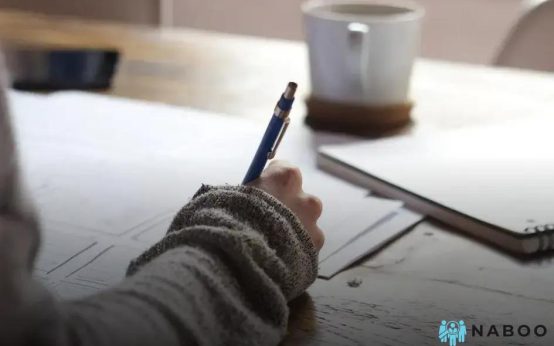Improving your communication skills is essential in today’s fast-paced world. Clear and effective communication can dramatically impact your personal and professional relationships. In this guide, we will explore practical strategies to enhance your ability to convey ideas and connect with others effectively.
By understanding the basics of communication, honing your active listening skills, practicing effective non-verbal communication, and developing empathy, you can transform how you interact with others. Let’s delve into each of these aspects to unlock your full potential in communication.
Understanding the Basics of Communication
At its core, communication involves the transfer of information from one person to another. This exchange happens through multiple channels: verbal, non-verbal, written, and visual. Understanding how these channels work can significantly improve your communication skills. The key is to be clear and concise, making sure your message is easily understood by the recipient.
Verbal communication involves the choice of words, tone of voice, and clarity of speech. Choosing the right words is crucial as it affects how your message is perceived. Ensure your tone conveys your emotions appropriately, whether you’re conveying urgency, enthusiasm, or empathy.
Non-verbal communication includes facial expressions, gestures, and body language. These cues can reinforce or contradict what you’re saying, so being aware of them is vital. Pay attention to eye contact and posture, as they can express trust and openness.
Communication also involves active listening, where you focus on what the other person is saying. This practice includes nodding, maintaining eye contact, and avoiding interruptions. Active listening shows respect and improves your understanding of the message.
Effective communication requires a balance of speaking, listening, and non-verbal cues. Understanding this balance is essential for improving personal and professional relationships.
The Importance of Active Listening
In the journey to enhance your communication skills, understanding the role of active listening is crucial. Active listening is more than just hearing words; it involves paying full attention to the speaker and understanding their message thoroughly. This skill ensures that you are fully engaged in conversations, reflecting back what you hear, and asking relevant questions. By adopting active listening, you demonstrate an interest in what others have to say, which fosters mutual respect and empathy.
Steps to Practice Active Listening
Begin by giving your full attention to the speaker, avoiding distractions like your phone or surrounding noises. Maintain eye contact to show engagement. Utilize verbal nods and affirmations like ‘I see’ or ‘That makes sense’ to encourage the speaker to continue. When the speaker finishes, paraphrase or summarize what you’ve heard to confirm understanding. Ask open-ended questions to delve deeper into the discussion, showing genuine curiosity and interest in their perspectives.
Implementing these techniques not only enhances your understanding of the other’s viewpoint but also builds stronger connections, creating an environment of trust and cooperation. The ability to listen actively bridges the gap between hearing and understanding, vital in any successful communication.
Practicing Effective Non-Verbal Communication
Non-verbal communication is a critical component of effective interpersonal skills. Paying attention to your body language, facial expressions, and gestures can significantly enhance your ability to convey messages and connect with others.
Understanding Body Language
Your body posture, eye contact, and hand movements communicate much more than words can say. Stand up straight to signal confidence, maintain eye contact to show interest, and use open gestures to demonstrate approachability. Facial Expressions Matter Your face often mirrors your emotions, making it a powerful tool in communication. Practice relaxing your facial muscles to avoid unintentionally transmitting stress or annoyance. A simple smile can convey warmth and approachability, making your interactions more engaging.
Listening Through Observation
It’s not just about observing others; it’s about truly seeing what they’re not verbally communicating. Notice their micro-expressions and body cues. This insight can help tailor your responses more effectively, fostering a deeper connection. Personal Space Considerations Being mindful of personal space is crucial. Respecting others’ personal bubbles maintains comfort and respects boundaries, enhancing mutual respect and understanding. Practicing Regularly Incorporate non-verbal communication exercises into your routine. Whether through role-play or mirror techniques, regularly practicing can help you become more aware of your signals and improve your ability to interpret others. By effectively harnessing non-verbal cues, you enhance not only your speaking abilities but also create a more profound, engaging, and empathetic communicative environment.
Developing Empathy and Open-Mindedness
To enhance communication skills, cultivating empathy and open-mindedness is essential. Empathy allows us to understand the feelings of others, bridging emotional gaps. It’s crucial to approach conversations aiming to see the world from another’s viewpoint. By acknowledging and validating the emotions of others, one can foster trust and rapport, making dialogues more meaningful and productive.
Being open-minded involves actively considering new ideas and perspectives. It encourages embracing change and diversity, which sparks richer interactions. To develop this mindset, practice curiosity by asking questions and engaging deeply with different opinions. This enhances communication by dismantling barriers that often arise from preconceived notions and biases.
Engaging Strategies
Participate in discussions or workshops focused on diverse cultures and philosophies. Engage in reflective exercises that challenge your habitual thought processes. Each of these strategies nurtures a more inclusive approach in conversations. A willingness to adapt and learn during interactions not only contributes to personal growth but also creates an environment where all participants feel heard and valued.
Remember, it’s a continuous journey towards growth. Every effort in building empathy and embracing new viewpoints enriches personal and professional exchanges.




